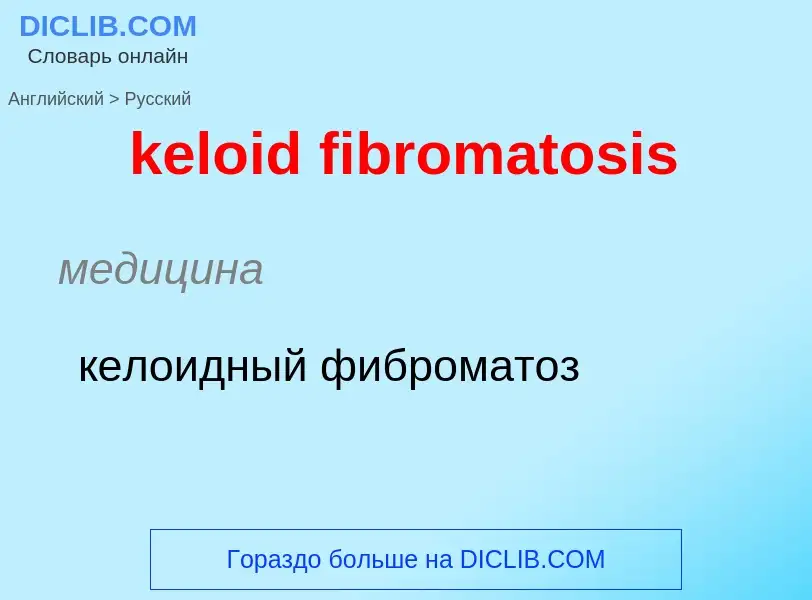Traducción y análisis de palabras por inteligencia artificial ChatGPT
En esta página puede obtener un análisis detallado de una palabra o frase, producido utilizando la mejor tecnología de inteligencia artificial hasta la fecha:
- cómo se usa la palabra
- frecuencia de uso
- se utiliza con más frecuencia en el habla oral o escrita
- opciones de traducción
- ejemplos de uso (varias frases con traducción)
- etimología
keloid fibromatosis - traducción al ruso
медицина
келоидный фиброматоз
['ki:lɔid]
общая лексика
келоид
существительное
медицина
келоид
ожоговый рубец
медицина
сосочковый дерматит головы Капоши
угревой келоид
Definición
Wikipedia
Keloid, also known as keloid disorder and keloidal scar, is the formation of a type of scar which, depending on its maturity, is composed mainly of either type III (early) or type I (late) collagen. It is a result of an overgrowth of granulation tissue (collagen type 3) at the site of a healed skin injury which is then slowly replaced by collagen type 1. Keloids are firm, rubbery lesions or shiny, fibrous nodules, and can vary from pink to the color of the person's skin or red to dark brown in color. A keloid scar is benign and not contagious, but sometimes accompanied by severe itchiness, pain, and changes in texture. In severe cases, it can affect movement of skin. In the United States keloid scars are seen 15 times more frequently in people of sub-Saharan African descent than in people of European descent. There is a higher tendency to develop a keloid among those with a family history of keloids and people between the ages of 10 and 30 years.
Keloids should not be confused with hypertrophic scars, which are raised scars that do not grow beyond the boundaries of the original wound.



![Japanese sailor with keloid scarring during the [[First Sino-Japanese War]]. People of Asian descent are among the groups more likely to develop keloid scars. Japanese sailor with keloid scarring during the [[First Sino-Japanese War]]. People of Asian descent are among the groups more likely to develop keloid scars.](https://commons.wikimedia.org/wiki/Special:FilePath/The Surgical history of the naval war between Japan and China - during 1894-95; translated from the original Japanese report (1900) (14595050100).jpg?width=200)




